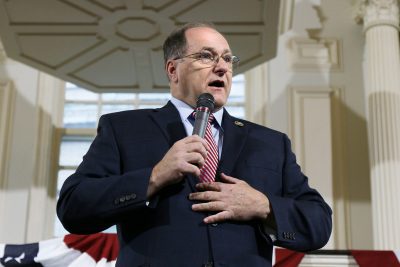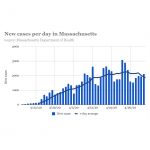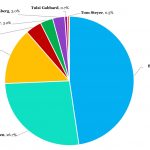
The Boston University College Democrats hosted a panel with former U.S. Rep. Mike Capuano and other prominent Democrats in the Boston area Thursday to discuss the future of the Democratic Party.
BU College Democrats communications director Eva Jungreis, a senior studying behavioral economics, and treasurer Nancy Santarsiero, a junior studying political science, moderated the panel that was held in the BU School of Hospitality Administration.
The panel comprised of six speakers within the Democratic Party, including Capuano, BU international relations associate professor Kaija Schilde and BU professor of history Bruce Schulman.
Other panelists were Anthony Collins, field organizer for U.S. Rep. Ayanna Pressley’s 2018 campaign, Stephen Joyce, the Political Director for the New England Regional Council of Carpenters, Jonathan Cohn, chairman of the Elections Committee and the Issues Committee of Progressive Massachusetts, and Anthony Collins, a congressional aide for Stephen Lynch and an organizer on Ayanna Pressley’s congressional campaign.
Panelists discussed the 2020 election, the Green New Deal, the question of compromising with Republicans and whether or not the Democratic Party should be moving to the left. A question and answer session with the audience followed the discussion.
Santarsiero said the goal of the panel was to have an open, honest conversation.
“We’re so excited,”Jungreis said before the panel began. “Our general meetings are all about current events and more urgent political topics, and it’s not often that we get to take a break and really in a thorough, open way discuss the future.”
During the panel’s discussion of leftward movement in the Democratic Party, Schulman said because there is no streamlined definition of left and right, it makes judging politics on that scale less effective.
“I think that it may be that the straightforward spectrum of right, center, left is not the best way to think about American politics,” Schulman said during the panel. “I don’t know if the Democratic Party is moving left today because it definitely depends what you mean by left.”
Joyce agreed with Schulman, adding Democrats shouldn’t be thinking in terms of left and right, but instead economically with “the top and the bottom” of America in mind.
“Left and right are getting so polarized that getting anything done is becoming more and more difficult in politics today,” Joyce said in the panel. “ …People that are out, working hard, being more productive and having a harder time getting anywhere and a top that continues to grow, … that’s where I think the Democratic Party needs to be looking.”
Capuano warned young activists about thinking of the current iteration of the Green New Deal as the one chance to fix climate change.
“It’s presented as if somehow it just came down from on high,” Capuano said in the panel. “But 40 years ago was Earth Day. That’s when it started, and it has been growing slowly but steadily over time. This is a new iteration of it.”
Cohn said the Green New Deal is an important step to move the conversation about climate change policy forward. Introducing ideas that push liberal ideology further, Cohn said, can help reshape the nature of the political landscape.
“One thing that Republicans have managed to do over time is to continually stake out positions further to the right,” Cohn said in the panel, “and that changes the political landscape, when you have a number of media pundits who will see two poles and whatever is dead right in between them is going to be treated as the center.”














